
Arquivo para a ‘Noosfera’ Categoria
Moderate realism and contemplation
It has already been stated that the rupture of the 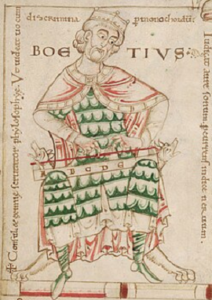 vita contemplativa was due to homo laborans, that is, in modernity when work becomes an economic imperative, especially for the poorest layers of society, at the beginning of the industrial revolution there was not even a time limit for workers and many industries disrespected even Saturday and Sunday.
vita contemplativa was due to homo laborans, that is, in modernity when work becomes an economic imperative, especially for the poorest layers of society, at the beginning of the industrial revolution there was not even a time limit for workers and many industries disrespected even Saturday and Sunday.
However, the issue arose in the Middle Ages, organized work in monasteries, and many of the first Benedictine monks came from the nobility, was carried out for the first time by free men, and even the word “tripalium” from which work comes meant torture (gutting). .
While thought in this medieval period arises the quarrel of universals, there are several versions for its origin, but a widely accepted one is a fragment found in the writings of Boethius (480-525 AD), before Thomas Aquinas, he translated into Latin and commented Aristotle, albeit partially, and made an introduction to Aristotle’s “Categories”.
The dispute was about questioning whether these categories were real things that existed or just names that were given to things, hence the medieval realist and nominalist currents, which have reached our days with the issue of the linguistic shift recently revived.
The fact that these things exist or not means that we must see Being as a being of language, as argued by Heidegger, or simply a fruit of the material environment and its variations, it is not just current materialism derived from objectivism, but from a view of the subjective, after all that which is characteristic of being (subjective comes from subject).
Moderate realism in the Middle Ages approached, but placed limits on realism, for example from Thomas Aquinas, who, as Boethius will reread the work of Aristotle, in his Summa Theologiae, characterizes as reason and this is a forgotten root of modern rationalism .
Boethius, much earlier in his reading of Aristotle, makes the choice between a “transcendent” or extreme realism, more of a Platonic nature, and an “immanentist” or moderate realism, influenced by Aristotle. It is important to emphasize that Boethius was a reader of Porphyry with a strong influence.
The question left by Boethius was “whether” universals (categories) existed, just to exemplify the idea of animals that are generic horses or real horses with race, color and their species, and which can be understood in two comments:
“since that it is necessary, Chrysarius, to know, through the useful contemplation of these things, what is genus and what is difference, what is species and what is proper and what is accident, as much as in Aristotle … Next, I will certainly refuse to say, about genera and species, the following: do they subsist or are they placed in isolated and naked intellects? Subsistent, are they corporeal or incorporeal?” (Boethius, 1906, p. 147).
The issue deserves to be deepened since the “names” of things mean a language.
Boécio. (1906) In Isagogen Porphyrii Commenta. Corpus Scriptorum Ecclesiasticorum Latinorum, vol. 48. Vindo-bonae: F. Tempsky/ Lipsiae: G. Freytag.
Between immortality and eternity
It is not just a spiritual theme as it seems, Hannah Arendt’s Vita Activa cited by Byung-Chul is a course correction, to remove us from simple mortal temporality, to the “time that is proper to the gods, who do not die and do not age , and the immortal cosmos” (Han, 2023, p. 145), where he differentiates immortality from eternity.
Arendt’s Vita Activa cited by Byung-Chul is a course correction, to remove us from simple mortal temporality, to the “time that is proper to the gods, who do not die and do not age , and the immortal cosmos” (Han, 2023, p. 145), where he differentiates immortality from eternity.
The search for immortality is, again Han quoting Arendt, “the source and center of the vita activa”. According to the author, “human beings achieve their immortality on the political stage. On the other hand, the objective of the vita contemplativa is not, according to Arendt, to persist and last in time, but the experience of the eternal, which transcends both time and the surrounding world” (Han, 2023, p. 145), in other words, immortality is the senseless search for the political stage, while eternity is the search for the experience of eternity already here and now.
But the author warns that the human being cannot linger on the experience of the eternal, “he needs to return to his surrounding world” (idem), when comparing it with the thinker, as soon as he starts writing he abandons the experience of the eternal , this is how one dedicates oneself to active life, and it is in this that one hopes to achieve immortality, Arendt admires Socrates who does not write, although Arendt herself thought and recorded her thoughts with the intention of immortality (Han, 2023, p. 146), but the Writing can be a contemplation, says the author.
In Byung-Chul’s view, the way Arendt sees Plato’s myth of the cave is actually a completely different story, it is of a philosopher who frees his companions from the chain of the shadows that waver before them, which they consider the only reality (page 147-8), Plato asks Glaucon to imagine: what would happen to philosophers if, after having seen the truth, they returned to it and tried to free prices from illusions? (page 148).
“Parehesia” (opening of the truth) is a risky situation, “the philosopher acts, when despite the danger of death, returns to the cave” in order to convince them of the truth, thus the action precedes the knowledge of the truth, while contemplation is the path from knowledge to truth, which precedes action (page 149).
After all, the Greek polis itself and Plato’s thought originated in the dialogues of Socrates written by Plato himself, this is a contemplative and discursive truth (I would say dialogical, but the term can have dubious interpretations), so action precedes thought in Plato.
According to Hans’ criticism, the idea that the loss of contemplative capacity led to the victory of the “animal laborans” that subjects everything to work with the consequent loss of contemplative capacity and its reintegration into nature and the planet.
Han quotes Saint Gregory, a master of the vita contemplativa: “when a good life program demands that one pass from the active to the contemplative life, it is often useful for the soul to return from the contemplative to the active life, in such a way that the flame of contemplation awakens in the heart surrender all its fullness of activity” (page 151), this is how eternity on earth is lived.
HAN, B.C. (2023). Vita Contemplativa: In Praise of Inactivity, transl. Daniel Steuer, USA, ed. Polity (the page numbers is in brazilian text).
The society that comes
This is the title of the last chapter of Chul Han’s book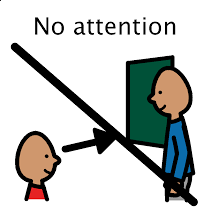 “Vita contemplativa”, in which he analyzes the religious crisis and its consequences for culture, being and current society.
“Vita contemplativa”, in which he analyzes the religious crisis and its consequences for culture, being and current society.
It begins by stating: “the current crisis of religion cannot be reduced simply to the fact that we have lost faith in God or become suspicious of certain dogmas” (page 153), it resides in the fact that we have lost the capacity to contemplate, a growing coercion Both communication and production make “contemplative time” difficult, there is no way to “stop”.
He quotes Malebrance who said that attention is like a “natural prayer of the soul”, our hyperactivity can be blamed on religion, “the crisis of religion is a crisis of attention” (page 154), and the worst thing is that the author does not points out, fanaticism dominates “attention”.
The author says “listening is the verb for religion” (page 155), but it is also for meditation, study, contemplation and reflection, whatever the threshold principle of a thought, it requires a stop, an inactivity.
In the current thought of romanticism, “freedom is decoupled from the self”, action gives way to listening: “only the tendency to intuition, when directed towards infinity, puts unlimited freedom in mind” (page 159) says the author now quoting Schleiermacher.
Still quoting Schleiermacher, he writes that tears interrupt the “spell that the subject places on nature” (page 160), dissolved in tears, the subject surrenders to the Earth.
Now quoting Agamben in “The Coming Community” he states about the coming kingdom of the Messiah that Walter Benjamin would have told Ernest Block and is quoting in Han:
“a rabbi, a true Kabbalist, once said: to establish the kingdom of peace, it is not necessary to destroy everything and start a completely new world; it would be enough to move that cup or that bush or that stone a little bit, and all things in the same way. But this little bit is so difficult to achieve and its measure so difficult to find that, as far as the world is concerned, men cannot achieve it and the messiah must arrive” (Aganbem apud Han, 2023, pg. 171).
It is this arrival, called parousia (a new coming for Christians) that is also celebrated at Christmas.
HAN, B.C. (2023). Vita Contemplativa: In Praise of Inactivity, transl. Daniel Steuer, USA, ed. Polity.
Meditate or pray
There is no space in contemporary life for time spent caring for one’s inner life, the hustle and bustle and demands of the “society of tiredness” pushes man to an action that is not always meaningful, in many cases a space of time is needed for the personal life.
the hustle and bustle and demands of the “society of tiredness” pushes man to an action that is not always meaningful, in many cases a space of time is needed for the personal life.
It may seem like alienation, or even something useless, but the countless human illnesses that only grow in society: depression, anxiety and even the use of chemical drugs are often the result of a process of inner emptiness that is not filled, of course there are cases that They are purely clinical and require specialized care.
The moment of conflicts and increased social tension only aggravates these phenomena of modern man, one of the processes that has been faced socially is that of treatments aimed at greater physical and mental health, public policies are necessary for this.
However, those who are healthier, in everyone there is always a gap of emptiness to be filled, must also take care that the “inner” life does not succumb to the pressure of a complex social life with constant dangers.
Therefore, care for inner life, in addition to physical health, must pay attention to human aspects that are fundamental, one of them is the use of meditation, prayer or praying, it depends on the type of worship each person has, but everyone has this need. .
In biblical passages in which processes of great public dialogue occur, whether between prophets, judges, kings or oracles, there is always a space reserved for the sacred, man before the infinite and for those who believe, before God
The passage in which the parable of the widow who insists that an unjust judge handle her case is told, is the path not of social justice as it may seem, but to say the fact that those who ask God for their “case” will be listen to the unjust judge, so that the widow does not trouble him any more.
The passage says (Luke 18:2-8):
“In a city there was a judge who did not fear God and respected no man. In the same city there was a widow, who came looking for the judge, asking: ‘Give me justice against my adversary!’ For a long time, the judge refused. Finally he thought: ‘I do not fear God, and I do not respect any man. But this widow is already annoying me. I will give her justice, so that she will not attack me!’” And the Lord added: “Listen to what this unjust judge says. And God, will he not give justice to his chosen ones, who cry out for him day and night? Will it make them wait? I tell you that God will give them justice very quickly. But when the Son of Man comes, will he still find faith on the earth?”
Prayer is a request to the just God to listen to the soul and calm the inside of the person who prays it.
The Parable of the Wise Virgins
The parable is a parable, therefore it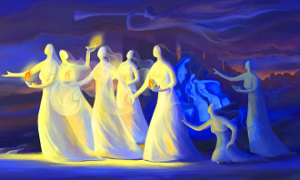 should not be taken literally, it may seem to refer to sexuality, the fact that 5 virgins have oil for the whole night and another 5 do not have enough oil, indicates that we must prepare well when the “ bridegroom” arrives, in the biblical case it is the encounter with God, and the oil means the “habit” that we develop in life to get there.
should not be taken literally, it may seem to refer to sexuality, the fact that 5 virgins have oil for the whole night and another 5 do not have enough oil, indicates that we must prepare well when the “ bridegroom” arrives, in the biblical case it is the encounter with God, and the oil means the “habit” that we develop in life to get there.
We discussed several aspects of prudence, and differentiated a “good life” (happiness in a broader sense) from temporary happiness (eudaimonia) that does not keep the lamps on, and here not only for eternal life, but for the course of our lives.
In a way, there is something to it since it is prudent to understand that there must also be prudence at this point, toxic, chauvinist, sexist relationships, etc., because these too can prepare us for a future life, even if it is still earthly, balanced and sensible, remember It is clear that both Aristotle and Thomas Aquinas also see rational reasons for exercising prudence.
Thus, a society that acts on impulse, through the control of passions over reason, and a long and lasting good life (in the Greek sense) depends on the exercise of virtues, and avoiding many situations of risk and irrationality depends on the exercise of virtues.
For those who don’t know, the parable of the wise virgins is this, where the bridegroom is the encounter with eternal life (Mt 25,1-7):
“The Kingdom of Heaven is like the story of the ten young women who took their oil lamps and went out to meet their bridegroom. Five of them were improvident and the other five were provident. The improvident ones took their lamps, but they did not take any oil with them. The foresighted ones, however, took vessels with oil along with the lamps. The groom was taking a while, and they all ended up dozing off and sleeping. In the middle of the night, a cry was heard: ‘The bridegroom is coming. Go to meet him!’ Then the ten young women got up and prepared the lamps.”
Prudence does not limit our happiness, but prepares us for future life, here on the earthly plane.
What was happiness for the Greeks
The Greeks defined happiness as Eudaimonia over the various human conditions: for those who are hungry, happiness is food, for those who are cold, warm clothes, for those who are ambitious, money, for those who are vain, honors, for those who are sick, health. , etc.
over the various human conditions: for those who are hungry, happiness is food, for those who are cold, warm clothes, for those who are ambitious, money, for those who are vain, honors, for those who are sick, health. , etc.
This is why, as we previously defined, rational happiness was called “good life”, and if so, how can we maintain that happiness is the good for men, since it must bring with it that they are common to all and the real possibility of life for everyone.
The purpose of life for each man can vary greatly from person to person, there are those who relate happiness to pleasure, pleasure, enjoyment, without any pain, but it is necessary to recognize the finiteness and limitation of these values and understand that life Full requires balance, give the necessary virtues, in Greek the arethé, Aristotle did not refuse pleasures, however he warned that this type of life aims only at the immediate and it is necessary to look at what remains.
Happiness is self-sufficient, that is, it is not desirable because of something else, and it is desirable in itself, so throughout life, we must shift our gaze from the outside to the inside and look within ourselves at those attachments and attachments to things temporary pleasures that are only temporal pleasures.
It was from the analysis of virtues and the practical exercise of ethics, Aristotle concluded that happiness is an activity, which is why it cannot be found potentially in man, it is not considered a virtue, although it does not occur without it, there is this potentiality in U.S.
Prudence and happiness
Breaking the rules or getting out of the box, there are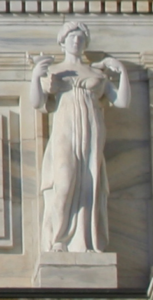 even books encouraging throwing everything away, is different from what the Greeks thought, of course a life that is going wrong needs to be analyzed.
even books encouraging throwing everything away, is different from what the Greeks thought, of course a life that is going wrong needs to be analyzed.
I used the word happiness, because the word used by the Greeks is “Good life”, which in its current connotation means eating, drinking, spending and sleeping, but it was not the conception of Aristotle and other ancient philosophers.
In Nicomachean Ethics, the philosopher demonstrates that to achieve the “good life” we must take into account our instinct, sensitivity and intelligence and, through the conjunction of these three elements, cultivate our best side, because, for example, instinct can be a trait of personality that does not lead to balance, this is where the idea of prudence comes in.
In book governs science, and prudence (phónesis) governs ethics, however the Greeks believed in an absolute science, capable of knowing the deepest structure of Being.
Such a core is eternal, immutable, absolute, and the ethics that is a consequence of this is practical science.
In it, prudence governs temperance, which is what will govern our instincts, it is what determines the good exercise of temperance, the wise person in ethical decisions is the one capable of finding the middle ground (ne quid nimis: nothing in excess), that is one of the practices.
It contains virtue (arethé) and in the soul there are three types of functions: irrational (nutrition, growth, etc.), motivational (generating actions) and rational (linked to our cognitive capacity that makes us capable of achieving true).
Just to give a practical example, whoever controls personal finances could include a description field in inputs and outputs, an explanation of the reason for spending or obtaining the resource.
For Aristotle, virtue is something that occurs in the soul, that is, our interiority, so he divides the virtues into ethical (courage, generosity, friendship, justice, etc.) and dianoetic (wisdom, temperance, intelligence, etc.).
So we can change a saying and now say that “the habit makes the monk”, now not with outer clothing, but with inner clothing, virtues create “virtuous circles” in us.
Homo economicus and the reduction of Being
Still on the Human Identity Card, chap. 2 of the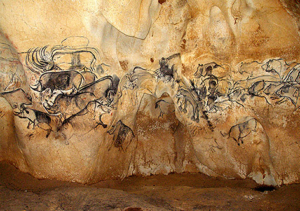 book Terra-Pátria by Edgar Morin, after a long speech on the prehistoric issue, there are already new advances and discoveries in this sense, such as the Chauvet Cave (discovered by amateur cavers in 1994, including Jean-Marie Chauvet) , show that what is called human subjectivity is something present and intrinsic in man that makes us rethink his “genetic” origin.
book Terra-Pátria by Edgar Morin, after a long speech on the prehistoric issue, there are already new advances and discoveries in this sense, such as the Chauvet Cave (discovered by amateur cavers in 1994, including Jean-Marie Chauvet) , show that what is called human subjectivity is something present and intrinsic in man that makes us rethink his “genetic” origin.
This cave from 32 thousand years ago (photo), from the Paleolithic period, shows through the paintings and environments of a cave that man, even if primitive, had feelings that were far superior to what we think dated back to our era.
Morin shows the fragmentation of this vision of man’s being: “Man’s biological characteristics were discussed in biology departments and medicine courses; psychological, cultural and social characteristics were divided and installed in the various departments of human sciences, so that sociology was unable to see the individual, psychology unable to see society, history accommodated itself apart and economics extracted from the Homo sapiens demens the bloodless residue of Homo economicus.” (MORIN, 2003, p. 61)
Philosophy can only “communicate with humans in experiences and existential tensions such as those of Pascal, Kierkegaard, Heidegger, without however ever being able to link the experience of subjectivity to anthropological knowledge” (idem), and only in the 1950s -60 thoughts appear about “the first approaches to the universal dialectic between order, disorder and organization…” (ibidem) and which will lead us to the basis of a fundamental anthropology.
Morin launches 5 essential points to get out of planetary agony: “• we are lost in the cosmos; • life is solitary in the solar system and probably in the galaxy; • the Earth, life, man, consciousness are the fruits of a singular adventure, with astonishing adventures and leaps; • man is part of the community of life, although human consciousness is solitary; • the community of humanity’s destiny, which is specific to the planetary era, must be inscribed in the community of terrestrial destiny.” (MORIN, 2003, p. 63).
Morin launches 5 essential points to get out of planetary agony: “• we are lost in the cosmos; • life is solitary in the solar system and probably in the galaxy; • the Earth, life, man, consciousness are the fruits of a singular adventure, with astonishing adventures and leaps; • man is part of the community of life, although human consciousness is solitary; • the community of humanity’s destiny, which is specific to the planetary era, must be inscribed in the community of terrestrial destiny.” (MORIN, 2003, p. 63).
Morin’s thought is not a treatise on humanity, but a warning of the dangers that this false imperative economic, power and environmental disaster adventure has led us to.
MORIN, E. and Kern, A.B. Terra-Pátria. Trans. by Paulo Azevedo Neves da Silva. Brazil, Porto Alegre: Sulina, 2003.
Terrestrial identity and the black hole
Chapter 2 of Edgar Morin’s book is “The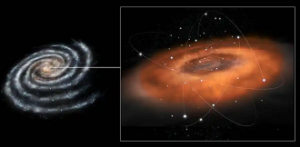 Terrestrial Identity Card” where he states that after the discoveries of astrophysics, biology, paleontology, ideas about the life of the universe, the nature of the Earth and man’s own life were “subverted in the 1950s-1970s” and we still didn’t have James Webb and the discovery of the ties between homo sapiens and Neanderthals.
Terrestrial Identity Card” where he states that after the discoveries of astrophysics, biology, paleontology, ideas about the life of the universe, the nature of the Earth and man’s own life were “subverted in the 1950s-1970s” and we still didn’t have James Webb and the discovery of the ties between homo sapiens and Neanderthals.
“Afterwards, with Copernicus, Kepler, Galileo, the Earth stopped being the center of the universe and became a round planet around the Sun, like the other planets” (page 43) and seemed to “witness the perfection of its divine creator” for order and regularity, until an expanding universe was discovered based on Hubble’s observations of the separation of stars in 1923, the astrophysicist would later give his name to the famous telescope already surpassed by James Web.
At the beginning of the 19th century, “Laplace expelled the Creator God from a self-sufficient universe that had become a perfect machine for all eternity” (pg. 44) and not cited there, but also in a Mathematics Conference at the beginning of the 19th century. . XX Hilbert proposes some last problems not solved by mathematics, to say that everything is logical and mathematical.
In 1965, Arno Penzias and Harold Wilson would give facts for this expansion of the universe as an “isotropic radiation originating from all horizons of the universe” and this “cosmological background noise” a kind of “fossil residue” from the initial deflagration of the initial explosion that would confirm the famous Big Bang theory, today the new data casts doubt on this, but something remained from this period, which is the conception of anti-matter and the investigation of black holes.
The 1960s, when Penzias and Wilson won a Nobel Prize, would bring new celestial bodies among them: “quasars (1963), pulsars (1968) (pg. 44), then black holes, and astrophysicists’ calculations suggest that we only know 10% of the matter, 90% of which is still invisible to our detection instruments” and that James Web is only now looking at.
The center of our galaxy is no longer the sun, but a black hole, and in it unfolds a whole new vision of the universe as “in its beginning the Unknown, the Unfathomable and the Inconceivable” (pg. 44), here we are now in a galaxy 8 billion years after “the birth of the world, and which, with its neighbors, seems attracted to a huge invisible mass called the “great Attractor” “ (idem), which is a black hole.
And we, a small planet, created 4 billion years ago, discover that it has a history, “and takes shape in the 19th century” and on the threshold of the 20th century, the German Alfred Wegener elaborates the theory of continental drift, despite the initial resistance, proven later.
After its initial long periods of cooling, the formation of the first microorganisms, and finally man appears, “the last and deviant branch of the tree of life, appears within the biosphere, which, linking ecosystems to ecosystems, now involves the entire planet”, This early birth, in recent discovery also unites Neanderthals and homo sapiens.
If “Bacon, Descartes, Buffon, Marx make it their mission to dominate nature and reign over the universe” (pg. 54), “from Rousseau onwards, romanticism will umbilically link the human being to Mother Nature” and thus, having a mother, man can be born and inhabit this Mother Earth.
MORIN, E. and Kern, A.B. Terra-Pátria. Trans. by Paulo Azevedo Neves da Silva. Brazil, Porto Alegre: Sulina, 2003.
The concept of Love in Augustine of Hippona
Hanna Arendt’s thesis was a milestone in her 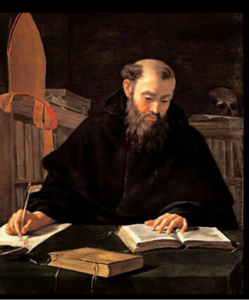 philosophical development, from a foundational aspect, it is the first of her works and marks an involvement with Heidegger, her first advisor with whom she became emotionally involved, and Karl Jaspers, who influenced the choice of the theme.
philosophical development, from a foundational aspect, it is the first of her works and marks an involvement with Heidegger, her first advisor with whom she became emotionally involved, and Karl Jaspers, who influenced the choice of the theme.
The work can be divided into three thematic axes: love for others, or life in society, love in the relationship between man and God the creator and love as desire, called appetitus.
The author also states that the bishop never completely excluded the philosophical ideas of antiquity, notably Cicero, Plato and Plotinus in his thinking, and no matter how faithful and Christian he became, “he never completely lost the impulse to question philosophical.” (ARENDT, 1996, p. 3).
The first part of the author’s dissertation called “Love as desire: the anticipated future”, within a philosophical perspective and in continuity with Hellenic thought, could not have a better title, since it is not love in the present, but “ anticipated future”, something that one hopes to have as a means of achieving happiness.
This love called cupiditas is shaped by a “desirous desire, that is, appetitus”, but caritas also has this aspect of “future” desire, but it is a free love.
Augustine asks in Confessions: “What do I love when I love my God?” (Confessions own essence, finally finds eternal love in his own Being.
Love for others, or social love, was developed by the author: man must love his neighbor as God’s creation: […] man loves the world as God’s creation: “in the world the creature loves the world as how God loves. This is the realization of a self-denial in which everyone, including yourself, simultaneously reclaims your God-given importance. This fulfillment is love for others.” (ARENDT, 1996, p. 93)
Augustine differentiates the polis from the city of God, the name of another of his works, and clarifies Arendt: “This defense is the foundation of the new city, the city of God. […] This new social life, which is based on Christ, is defined by mutual love (diligire invicem)” (ARENDT, 1996, p. 108).
Thus, Augustine’s work is philosophical, theological and political, although this aspect is ignored.
ARENDT, Hannah. Love and Saint Augustine. Chicago: University of Chicago Press, 1996.

